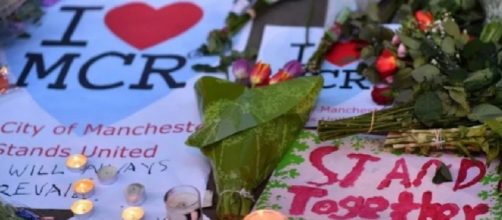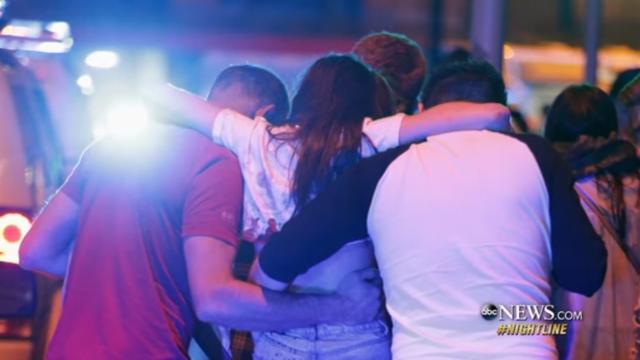Yesterday marked the first anniversary of the suicide bombing attack at Manchester Arena that killed 23 people (including Salman Abedi, the 22-year-old ISIS terrorist who detonated the homemade explosives device) and the survivors all joined together to remember those who were lost that night. There was a wide sing-along that was led by some talented choirs before everyone else joined in, which only serves to reinforce the meaning of the hashtag #WeStandTogether.
The hashtag #WeStandTogether has been circulated a lot since the attack at the MEN Arena, which became a sort of anti-terrorism movement and referred to standing together in the face of terror instead of being divided by it.
The survivors of the attack have used the anniversary event to open up in a crowd of people in similar positions to them, almost like a large, public support group, and tell each other how they have been coping since the attack and what kind of effect it’s had on them psychologically. The mere fact that they can do this is a striking tribute to the human spirit.
The bomb went off at an Ariana Grande concert, and the singer has opened up recently about the trauma that she endured in the time following the attack. She has even said that she was almost scared off ever performing again. But luckily, she managed to get back on her feet and continue her career, including a benefit concert for the victims and survivors of the terrible attack.
It was reported as the deadliest terrorist attack in the UK since the 7/7 bombings in London.
‘I must’ve died two hundred times in my nightmares’
50-year-old Daren Buckley, who was blown off his feet along with his son by the explosion, has said that he got his son to a safe place before rushing back in to help as many people as he could. He has described the ordeal of this as “like a nightmare,” even saying that it felt so unreal that he was expecting to be woken from a dream at any minute. He was ripping up the souvenir Ariana Grande concert t-shirts to use as tourniquets. He also claimed to have been having “flashbacks” to the incident and commented on the mental toll it has taken on him over the past year.
“I must’ve died two hundred times in my nightmares,” he said.
Lyndsay Turner bought her two children tickets to the concert and they went with her sister-in-law and her mother. She said that the fact that she bought the tickets for her family and “put them in danger” will “always” haunt her. She was on the phone with her son when she heard “the bang” and “panic in his voice” before the phone line cut out. Despite surviving a suicide bombing attack at a concert, Lyndsay’s son Ciaran Danson still aspires to be a singer in the future, which is yet another testament to the human spirit.
Emergency responders compare bombing wounds to ‘warzone injuries’
Emergency services medical consultant Dr. Alistair Rennie has spoken about the injuries he looked at on the night of the bombing and compared them to “warzone injuries,” as in the kind of wounds that one might expect to see on the body of a soldier who’s just been mauled in battle, not concertgoers who are just out to see a singer perform a set.
Rennie was in charge of coordinating the emergency response to the attack across both Manchester Royal Infirmary and the Royal Manchester Children’s Hospital. So many people had been injured in the attack that two hospitals were required to treat them all.
Mark Robinson, one of the survivors of the attack, has spoken out to say that since surviving the suicide bombing in Manchester, he has come to appreciate the “simple things” in life more, such as “walking the dog, listening to birdsong, rain on your face,” etc. He said, “Life is so precious and it can be taken away in an instant.”



